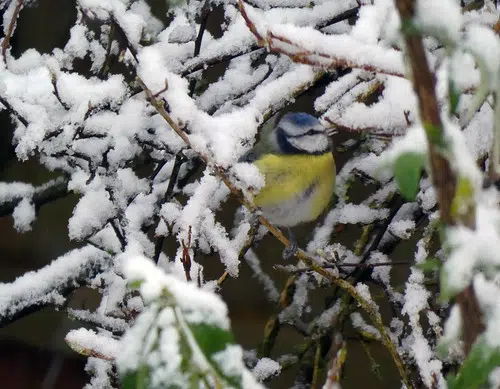RHINELANDER, WI (WSAU-WXPR) — Recent data shows winters are on a warming trend in Wisconsin.
Climate Central is an independent organization of scientists and journalists focused on climate change and its impact. It recently released its winter report for data from across the country. It breaks it down by state and then regions within states. For the Wausau area, which is the northernmost region listed in Wisconsin, temperatures are up 4 degrees Fahrenheit since 1970.
We’re also experiencing an average of 12 more days of above-normal temperatures during the winter. “One of the more pronounced changes is that there are fewer episodes of really cold nights for example or really cold temperatures,” said Associate Director of the Center for Climatic Research at UW Madison Michael Notaro to WXPR Radio.
He says people may also notice a change in how long the ice stays on the lakes. “Lakes are freezing for a lot shorter time period. For our context down in Madison, for example, Lake Mendota’s ice duration season has shortened by about 25%,” said Notaro.
If this warming trend continues at this rate, the Northwoods could see a lot less ice in our future. “In the case of the great lakes have projections that by the end of the centuries, for example where the lakes are mostly ice-free and the very short ice season, so it’s just a complete change of what we know for our region,” said Notaro.
That lack of snow, ice, and cold temperatures could have large implications for our region. Notaro says the biggest change we’ll likely see is an overall shorter winter, this means less time for cross country skiing, snowmobiling, ice fishing, and all the other winter outdoor activities people enjoy.
There are also negative impacts on farmers and wildlife. “Plants like fruit trees are blooming early and then you have a frost and a lost harvest,” said Notaro. “Dabbling ducks migrating later, staying up in the Great Lakes Region where there are not many wetlands remaining, depleting food resources and then negatively effecting bird watchers and hunters in the southern states.”
Notaro says there are steps we can take to slow climate change to prevent these things from happening or at least put them off. “Obviously the main culprit from climate change is the use of fossil fuels so we need to reduce fossil fuel use,” said Notaro.
The state has put together a Climate Change Task Force that recently released a report with strategies Wisconsin can take to combat climate change.






Comments